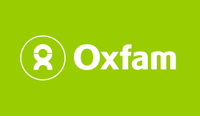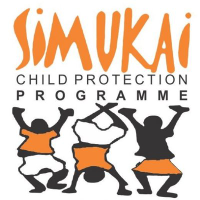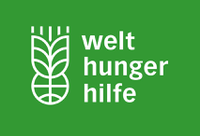End of Project Evaluation Consultant- Chimanimani USAID Supported Project
Job Description
Welthungerhilfe is one of the largest, privately held, non-denominational and politically independent German non-governmental organisations in development cooperation and emergency relief. Primarily, in cooperation with local partner organisations, it is tasked with contributing to the improvement of the nutritional and income status of the poorest rural populations in Africa, Asia and Latin America. Welthungerhilfe has been implementing projects in Zimbabwe almost continuously since 1980. Currently, the organisation together with its partners is having projects in all provinces in Zimbabwe. Sector focus is on, Water Sanitation and Hygiene (WASH), Food and Nutrition Security, Livelihoods, and when required Emergency response
In March 2019 Chimanimani District was hit by Tropical Cyclone Idai in Zimbabwe, which resulted in flooding and landslides, leading to loss of lives, infrastructural damage, and displacement of people. Affected households were temporarily housed in IDP camps and eventually relocated to Runyararo, ward 7 and provided with housing by the Government of Zimbabwe in October 2021.
Chimanimani is classified largely under IPC 3, with at least 40% of the population facing high levels of food insecurity. Ward 7, Bumba is a dry region with poor harvests and food diversity and consumption patterns are poor. The market assessment indicated that access to food and farming inputs from the market is limited due to the unavailability of resources and money to purchase the goods. Challenges faced by the local community include unfair pricing mechanisms, high input prices, climate change and lack of markets which contribute to the food insecurity.
Position Summary:
Welthungerhilfe is seeking for a BHA Chimanimani End of Project Evaluation Consultant. Please kindly refer to the Terms of Reference below for more information on this advert
Terms of Reference
Project Summary
Goal: The goal of the emergency relief and recovery project is to improve livelihood, food security, social cohesion, psychosocial support, and access to basic WASH services for relocated IDPs and host population living in Ward 6 and 7, Chimanimani District.
Purpose
This Project was implemented by Welthungerhilfe in partnership with Tree of Life (ToL) with funding from USAID to support the efforts of Government of Zimbabwe in wards 6 and 7 of Chimanimani District in Manicaland Province of Zimbabwe. The intervention was informed by a situational analysis of the relocated Internally Displaced People (IDPs), highlighting three priority needs for both the relocated Internally Displaced People (224 households) and host community (606 Households), namely:
• (Objective/Purpose1) access to food and sustainable livelihoods (agriculture and livestock),
• (Objective/Purpose 2) access to clean drinking water and sanitation
• (Objective/Purpose 3) protection needs of IDPs to address their mental health, community conflicts, and cohesion and integration issues between the host community and relocated IDPs.
WHH was responsible for the overall implementation of activities that fall under purpose one and two whilst ToL focused on purpose three.
The intervention was targeting both the relocated IDPs as well as the host families within ward 6 and 7 in Runyararo area in Chimanimani District.
Project’s Intervention Logic
The project implemented four main sectors towards addressing the needs of the IDPs and the host community namely:
• Agriculture and Food Security
• Economic Recovery and Market Systems
• WASH and
• Protection
Sector Name: Agriculture and Food Security
Objective: To improve food and nutrition security and support livelihood recovery for the relocated IDPs and the most vulnerable host families
Sub-Sector 1: Improving Agricultural Production
Indicator 1: Number of individuals (beneficiaries) directly benefiting from improved agricultural production
Indicator 2: Number of hectares under improved management practices or technologies with BHA assistance
Indicator 3: Number of individuals (beneficiaries) who have applied improved management practices or technologies with BHA assistance.
Indicator 4: Number of beneficiary households using improved post-harvest storage practices
Indicator 5: Number of individuals directly benefiting from seed systems/agricultural input activities
Sub-Sector 2 Livestock
Indicator 1: Number of individuals benefiting from livestock activities
Indicator 2: Number of animals benefiting from livestock activities
Indicator 3: Average number of animals owned per individual (household)
Indicator 4: Number of individuals (beneficiaries) trained in livestock management.
Sub-Sector 3 Pests and pesticides
Indicator 1: Number and percent of hectares protected against disease or pest attacks.
Indicator 2: Number of individuals trained in appropriate crop protection practices
Indicator 3: Percentage of individuals who received training who are practicing appropriate crop protection procedures
Sector Name: Economic Recovery and Market Systems
Objective: To improve food and nutrition security and support livelihood recovery for the relocated IDPs and the most vulnerable host families
Sub-Sector 1: Livelihoods Restoration
Indicator 1: Number of individuals assisted through livelihoods restoration activities.
Indicator 2: Percent of beneficiaries reporting net income from their livelihoods
Sector Name: WASH
Objective: To provide WASH facilities for the relocated IDPs, and host community accompanied by training on sustainable operation of the infrastructures and promotion of positive hygiene behaviors.
Sub-Sector 1: Water Supply
Indicator 1: Number of individuals directly utilizing improved water services provided with BHA funding.
Indicator 2: Number of individuals gaining access to basic drinking water services as a result of BHA assistance
Indicator 3: Percent of water user committees created and/or trained by the WASH program that are active at least three (3) months after training.
Sub-Sector 2: Hygiene Promotion
Indicator 1: Number of individuals receiving direct hygiene promotion (excluding mass media campaigns and without double-counting)
Indicator 2: Percent of individuals targeted by the hygiene promotion activity who know at least three (3) of the five (5) critical times to wash hands.
Indicator 3: Percent of individuals targeted by the hygiene promotion activity who report using a latrine the last time they defecated.
Sub-Sector 3: Sanitation
Indicator 1: Number of individuals directly utilizing improved sanitation services provided with BHA funding.
Indicator 2: Percent of households targeted by latrine construction/promotion activity whose latrines are completed and clean.
Indicator 3: Percent of latrines/defecation sites in the target population with handwashing facilities that are functional and in use.
Sector Name: Protection
Objective: To provide psychosocial support to relocated IDPs and host communities and promote strong social cohesion and resolve livestock management issues
Sub-sector: Psychosocial Support Services
Indicator 1: Number of individual beneficiaries participating in psychosocial support services
Indicator 2: Number of community activities facilitated by BHA funding to promote social cohesion.
End of Project Evaluation Purpose and Objectives
The intervention targeted both the relocated IDPs and the host families within ward 6 and 7, in Runyararo. The proposed project was informed by a situational analysis, that highlighted three priority needs for both the 224 relocated IDPs households and 606 households from the host community, namely:
• (Objective/Purpose1) access to food and sustainable livelihoods (agriculture and livestock),
• (Objective/Purpose 2) access to clean drinking water and sanitation services.
• (Objective/Purpose 3) protection needs to address mental health, community conflicts, and cohesion issues between the host community and relocated IDPs.
Specific Objective: To improve food and nutrition security and support livelihood recovery for the relocated IDPs and the most vulnerable host families.
The projector activities fall under four sectors; agriculture, economic recovery and marketing systems, Water Sanitation and Hygiene (WASH) and protection. Sector specific objectives are:
• Agriculture: To improve food and nutrition security and support livelihood recovery for relocated IDPs and most vulnerable host families in Wards 6 and 7 in Chimanimani District.
• Economic Recovery and Market Systems: To improve food and nutrition security and support livelihood recovery for relocated IDPs and most vulnerable host families in Wards 6 and 7 of Chimanimani District.
• WASH: To improve access to WASH services for the relocated IDPs and host community and promote positive hygiene behaviors.
• Protection: To improve psychosocial wellbeing and social cohesion and resilience for relocated IDPs and host population in Wards 6 and 7 in Chimanimani District.
This evaluation will provide learnings to the development partners, USAID, WHH and Government and the target communities. The lessons will be useful for the target communities to strengthen coping strategies in emergencies and promoting self-reliance for resilience building. The evaluation will also assess the effectiveness of the current approach to improving the livelihoods, WASH, and psychosocial situation of the IDPs and Host community, as well as identify gaps, areas, and strategies for improvement and for future interventions. The evaluation will focus on assessment of outcomes and impact from the emergency project activities conducted by WHH and implementing partners.
Duties and Responsibilities
Scope of the Assignment
The End of Project Evaluation will cover the Runyararo area in Ward 7 Chimanimani
Evaluation Criteria
The evaluation will assess, the project’s performance on services, outcomes and impact guided by the Organization for Economic Co-operation and Development (OECD) Development Assistance Committee (DAC) framework: Relevance, Efficiency, Effectiveness, Impact and Sustainability.
Relevance- evaluate the extent to which the key activities or processes aligned to each stated outcome remained relevant to the context. Assess relevance of intervention results to address the contextual challenges and extent to which project design and approach were relevant to national and global development objectives.
Coherence and coordination-internal coherence, between the different components of the project, among partners, operational modalities and governance structure.
Efficiency- in resources management, and project partnership and structures including strategic and timely implementation of activities and quality of the internal project monitoring systems.
Effectiveness- evaluating the extent to which the project objectives and targets were achieved.
Impact- look at the wider range of outcomes (intended and unintended) and project contribution to social, economic, technical, and environmental consideration.
Sustainability- prospects for sustaining the achieved results, and scaling-up activities beyond the projects’ closure. Design of project sustainability and exit strategy and their implementation to promote national and local capacity to sustain the positive changes after the end of the project.
End of Project Evaluation Design and Methodology
• The evaluation team will apply the methodology as set out in the Evaluation Statement Works, including sampling for geographic sites, sampling for respondents and sample sizes. The sampling for respondents and FGDs and KII will be guided by the project participants and actors as defined in the project documents.
• The Consultant can also review and propose value addition adjustments to the methodology and submitted for approval to the Project team.
Evaluation process and deliverables
• Inception meeting: The evaluation team will attend an inception meeting where the team will be briefed on project objectives and key processes involved, reporting standards and provided with the key project documents for review.
• Inception Report: Before field work commences, evaluation team to submit an inception report detailing the methodology, sampling, identified stakeholders for interviews and timeframe for approval by project team. Survey tools, KII guides, FGD guides and an Evaluation Matrix should be submitted as annexes to the inception report.
• Data collection and analysis: Primary data collection plan to be developed by the evaluation team and submitted together with the inception report.
• Preliminary findings: The evaluator will present preliminary findings and recommendations.
• Draft report: The evaluation team will submit a draft report for project team review. Final report: Upon addressing the issues raised during review of the draft report the evaluator will submit the final evaluation report to the project team, including survey tools, data syntax and completed Management Response Matrix.
Time Frame/ Schedule
The evaluation will be conducted from the 28th of March to 30th April 2024. The consultant will submit a proposed work schedule guided by the provided time as part of the technical proposal.
Confidentiality
All documents and data acquired from documents as well as interviews and meetings are confidential and to be used solely for the purpose of the end of project evaluation. The deliverables and all material linked to the end of project study such as pictures, geo-locations are confidential and remain property of WHH and will be handle with WHH standards and data protection protocols.
Scope of Proposal Price and Schedule of Payments
The payments will be made based on the deliverables. WHH reserves the right to initiate payment upon Evaluation Management Team approval of deliverables by the consultant.
The proposed payment schedule is as follows:
The consultant will be paid upon production of the final report
Qualifications and Experience
The consultant or evaluation team is expected to have the following qualifications and competencies:
• The team leader should have at least master’s degree in one of the following fields: Development Studies, Agriculture, Business Studies, Monitoring and Evaluation or any other relevant fields.
• The team leader must have at least 8 years demonstrable experience in conducting external evaluations, particularly in agriculture and food security, economic recovery and market systems, WASH, and Protection (including psychosocial support and social cohesion)
• The team leader must have at least 5 years of working experience in international development and context specific issues in dealing with Internally Displaced persons (IDPs)
• The consultant(s)/consulting firm must have good command in both written and spoken English and Shona.
• The team should include experts with advanced knowledge in participatory appraisals, documentation, reporting skills, strong communication and analytical skills, and commitment to delivering timely, high-quality results.
• Experience in evaluation of USAID funded projects in Chimanimani will be an added advantage
How to Apply
Interested Consultants or firms are requested to submit:
• A Technical Proposal detailing the Consultant’s understanding of the Terms of Reference (TORs), proposed methodology and work schedule.
• A Financial Proposal detailing the proposed budget for conducting the assignment. This should include daily professional fees including VAT, field travel costs and any other costs.
• 3. A Capability Statement demonstrating how the consulting team meets the required qualifications and experience requirements in the form of samples of similar previous evaluations done.
• 4. Copies of all relevant Curriculum Vitae (CVs) for the evaluation team including two references.
• 5. Legal documents (registration and tax clearance in case of consulting firm).
• Application Procedure
During the application process, WHH will not charge any fee nor will it require any payment for an application to be considered. WHH is an equal opportunity employer and employs personnel without regard to race, place of origin, colour, ethnic origin, language, creed, religion, gender, sexual orientation, age, marital status and or physical handicap: Persons with disability are encouraged to apply:
Completed bids must be sent by email in PDF format to: [email protected] with heading: Chimanimani USAID BHA End of Project Evaluation. No hard copy submissions will be accepted. Applicants are also invited to submit example/s of end-line report/s in the past. Application received with incomplete documents and later than the above date will be disqualified.
NB: Only shortlisted applicants will be contacted and comprehensive and specific details about the project will only be shared with the successful Consultant.
Similar Listings

Baseline Assessment for the project, “Integrated Emergency Response for El Niño Drought Affected Communities in Zimbabwe,
Oxfam — Harare

Terms Of Reference
Oxfam — Harare

Terms Of Reference
Oxfam — Harare

CALL FOR EXPRESSION OF INTEREST FOR CONSULTANCY SERVICES FOR THE DESIGN AND IMPLEMENTATION OF A CAPACITY DEVELOPMENT PROGRAM FOR SIMUKAI CHILD PROTECTION PROGRAMME
Simukai Child Protection Program — Harare

Location: Chimanimani
Company: Welthungerhilfe
Expiry Date: 2024-03-20 00:00:00
